Hell No
A posthumously published book by political activist Tom Hayden offers lessons from the Vietnam era for our own time.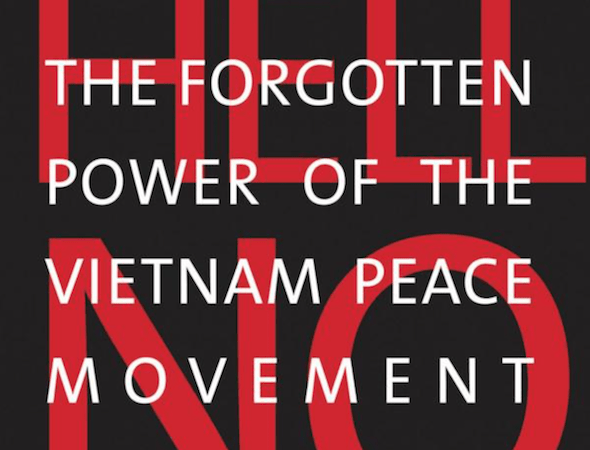
Yale University Press
| To see long excerpts from “Hell No” at Google Books, click here. |
“Hell No: The Forgotten Power of the Vietnam Peace Movement”
A book by Tom Hayden
The United States has long had a problem with historical memory.
The protesters who recently flooded the country’s airports, in response to President Trump’s ban on refugees and travelers from seven predominantly Muslim countries, carried handmade signs declaring the United States a nation of immigrants, and some of those signs took a longer view of the latest immigrant backlash. Some, for example, noted that the current wave of Islamophobia was ginned up after Sept. 11, 2001; others reminded viewers that there is already a border fence, begun in 1994 under President Bill Clinton. The urgency of the protests and the sense of violation engendered by Trump seem so immediate that we can feel disconnected even from the recent past, missing the threads of how we got here in the first place.
 Hell No: The Forgotten Power of the Vietnam Peace Movement
Purchase in the Truthdig Bazaar
Hell No: The Forgotten Power of the Vietnam Peace Movement
Purchase in the Truthdig BazaarOn the campaign trail last year, as Americans weighed who would be the next president, Bernie Sanders breached what often appears to be a silent understanding that politicians should not bring up history more distant than a year or two. His target: Hillary Clinton’s chummy relationship with Henry Kissinger, the architect of much of the Vietnam War. “I happen to believe that Kissinger was one of the most destructive secretaries of state in the modern history of this country,” Sanders declared.
The reaction to his comment was a stark reminder of our tendency toward historical amnesia. It was seen as almost rude to point out that past actions — actions that cost thousands of lives — have relevance today. Kissinger was just another elder statesman to be courted, while any discussion of his deeds was off-limits. For Sanders to disobey the dictum, made famous by Barack Obama but that certainly predates him — look forward, not backward — felt radical.
Tom Hayden’s final book, “Hell No: The Forgotten Power of the Vietnam Peace Movement,” is a strike against such forgetting. To remember the power of the movement, Hayden argues, is to remember that there were those who at the time accurately saw the Vietnam War for what it was. It is to remember that our actions have echoes, that our present is shaped by the choices of the past.
Hayden, who died Oct. 23, 2016, may have considered that this book would be landing in a United States that had just elected Donald Trump president. He certainly felt the urgency of his advancing age; it is palpable when he writes: “Who will tell our story when we are gone? So much has already escaped memory, and now the time to capture remembrance is rapidly passing.” After his death, with Trump in office, Hayden’s call to remember the value of resistance is even more poignant.
“Hell No” is brief yet rambling; reading it feels as if one is listening to Hayden reminisce, wandering backward and forward in time, recalling some events in great detail and others with the barest mention. For a book concerned with memory, perhaps its biggest flaw is that it tends to assume that Americans have a knowledge of their own history — that they know, for example, about the moratoriums, as those massive marches against the Vietnam War were called.
It’s understandable: U.S. politics continues to exist in the shadow of the 1960s. Figures like Hayden continue to play a strong role in discussions and debates, and for a while have been the generation with the money and the power. But the call to remember — taken up ably by many recently, including Greg Grandin with “Kissinger’s Shadow” and Penny Lewis with “Hardhats, Hippies, and Hawks” — obscures the fact that these days, many of us never knew.
Hayden argues that the generalized disruption that the anti-war movement caused was akin to a general strike, a widespread refusal to take part in “the regnant political culture.” In particular, he draws on W.E.B. Du Bois’ argument that the refusal of enslaved people to work any longer under the Confederacy brought about victory for the Union in the Civil War. It’s a rather strained analogy, but it contains the seeds of an important lesson: Protest derives its power from its ability to halt business as usual. To shut down the war, the anti-war movement and the country as a whole had to become ungovernable.In acknowledging this fact, Hayden does not shy away from the controversial and even violent tactics used to resist the war. He discusses the firebombing of ROTC offices; the attacking, known as “fragging,” of officers by troops serving in combat; and the urban rebellions of the period as part of the broader resistance to the war. The anti-war movement, in Hayden’s telling, is the overarching narrative that makes the ’60s make sense. “The tragedy of the anti-war movement was that the whole never grew to become greater than its parts,” he writes, acknowledging the splits within the movement along lines of class, race, gender and political ideology.
But in order to sweep up all of the threads of the 1960s and ’70s movements, he gives short shrift to the work by organizers around civil rights, Black Power, feminism and economic equality. However important the anti-war movement was, however much it served as an umbrella for the analysis of the New Left, it is as critical to remember the distinct movements against racism, poverty and exploitation as it is to remember the resistance to the Cold War consensus that a massive amount of blood was worth shedding to contain communism.
Some of that blood was shed at home, Hayden reminds us, as massive state power was expended to silence the movement. He details the trials of activists and whistleblowers, and does not let us forget the student protesters killed on their campuses, the police assaults, the growth of a massive surveillance apparatus that sees the general public as suspects to be spied upon.
It is not just the security state that is still with us, nor even just the specter of Kissinger looming over our foreign policy debates. Our past two secretaries of state and unsuccessful Democratic presidential candidates both appear in “Hell No”: John Kerry as a member of Vietnam Veterans Against the War, and Clinton as a young protester finding her way. Their appearances feel elegiac in the wake of the election, serving not to remind the reader of a lost radical past but to underscore just how far from radicalism so many former peaceniks have come.
But honor is best given to the anti-war movement by those who take up its torch of resistance, and that is everywhere. Tactics such as student strikes and teach-ins have been revived in the days since Trump’s election, and millions took to the streets after his inauguration. We have seen once again the power of veterans’ protests as veterans traveled to Standing Rock to stand with the Native water protectors against the Dakota Access pipeline. Looking at this, it is a shame that in his meditative final chapter, Hayden does not spend more time connecting the dots between our recent age of protest and the one that formed him. Surely there are lessons from the Vietnam era for our own time of armored vehicles and tear gas on American streets.
Still, Hayden’s most important takeaway resonates powerfully today: “Of one lesson I have no doubt: Peace and justice movements can make a difference.”
Sarah Jaffe is a reporting fellow at the Nation Institute and the author of “Necessary Trouble: Americans in Revolt.”
©2017, Washington Post Book World Service/Washington Post Writers Group
Independent journalism is under threat and overshadowed by heavily funded mainstream media.
You can help level the playing field. Become a member.
Your tax-deductible contribution keeps us digging beneath the headlines to give you thought-provoking, investigative reporting and analysis that unearths what's really happening- without compromise.
Give today to support our courageous, independent journalists.
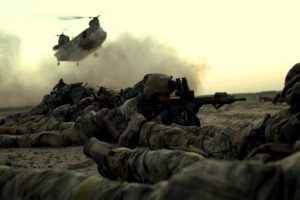

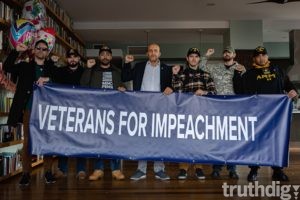
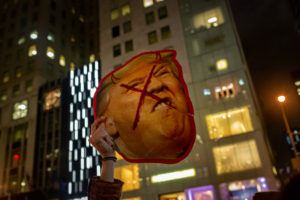
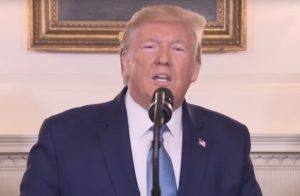
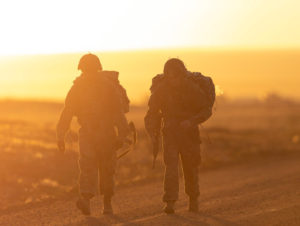


You need to be a supporter to comment.
There are currently no responses to this article.
Be the first to respond.